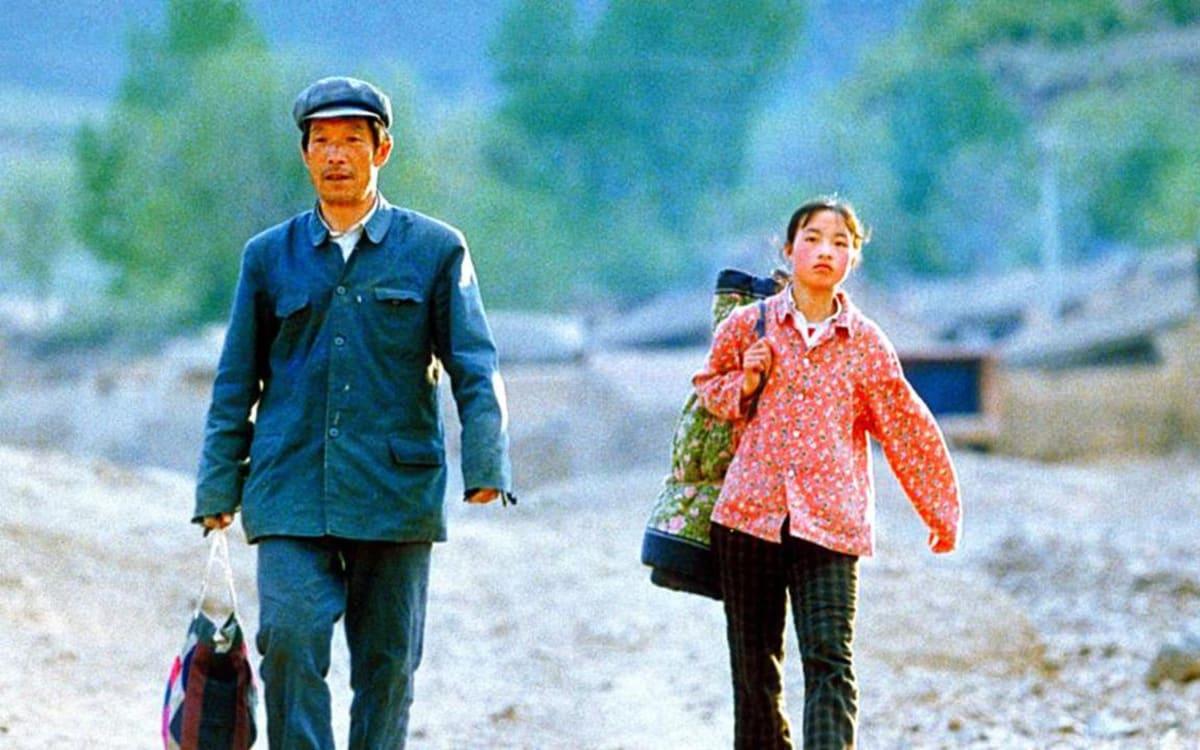Not One Less by Zhang Yimou (Review)

As with The Road Home (which was around the same time), Not One Less takes place in a distant and remote village. The schoolteacher has to leave for a month, and a young girl named Wei is hired from a nearby village as a substitute. Barely older than her students, she is placed in charge of an unruly bunch to say the least. The schoolteacher promises her that he’ll give her a bonus when he returns, but only if every single student is accounted for.
Unsure as to what to do, Wei doesn’t do much of anything at first, which angers the mayor. Of course, the students don’t make it too easy on her, as they see hardly see her as an authority figure. One boy in particular, Zhang Huike, makes Wei’s life miserable. Confused and frustrated, all Wei cares about is receiving her bonus, even trying to prevent one of the students from being sent to a prestigious athletic school.
Seeing as how the village is very poor, many students have already left to find work in the city. This situation befalls the troublemaker Zhang, who has to find work to pay off his family’s debts. When Wei discovers this, she organizes to class to raise money to send her to the city. Together, the class begins to raise funds, and for the first time, Wei actually starts teaching them. But the amount needed is nearly impossible to raise, so Wei decides to head to the city on foot.
Being a country girl, she’s completely out of her element in the city, and all of her efforts to track down Zhang are fruitless. Penniless and confused, she eventually finds herself outside the TV station, where she hopes that someone will hear of her plight and allow her to post an ad.
Perhaps the greatest choice Yimou made when making Not One Less was the decision to use amateurs in lieu of actors. The cast is an assortment of villagers, schoolchildren, and local professionals, and for many of them this was their first and only movie. The use of amateurs lends the film a rough, neo-realist feel that lends credibility to the story.
Still, the film never quite has the emotional impact you think it should. Part of the problem is that Wei’s transformation in the film feels incomplete to me. At first, her only motivation for searching out Zhang is that she wants her bonus. Of course, by the end of the film that’s all changed. You see the “before” and “after” pictures, but never any glimpse of the character’s heart changing. Sure, we see her go through all manners of hardship and trial, but there’s nothing to imply that these are affecting a change in her character. I kept waiting for one scene where Wei realizes that her motives are not fuelled by greed, but rather, by responsibility and concern. This is implied in the film’s tearful reunion, but that’s all there is, an implication.
The film does take a stark look at China’s impoverished rural schools, the trend of child workers, and lack of concern on the part of urban dwellers for their rural countrymen. At times like these, Yimou often slips in some subtle social commentary, which is fine and good. In fact, much of what Yimou accomplishes in the movie is laudatory; the film’s realistic approach is refreshing and the children’s’ performances are both cute and poignant (especially Zhang Huike’s).
I can easily see how someone might disagree with my opinion of the film, with my assessment of Wei’s personal journey. In fact, I would love to hear other people’s opinions, because maybe there is something I overlooked. But personally, I can’t help but feel like something is missing from the film, that little extra bit that could turn this well-done and moderately moving tale into something truly emotional and fetching.
